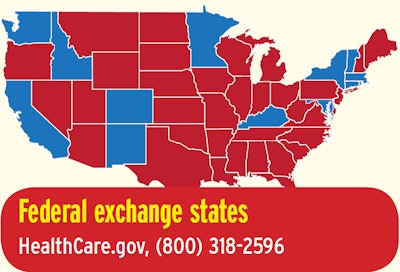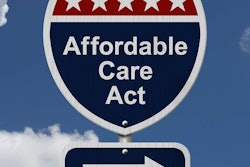With President-Elect Donald Trump’s inauguration set for Jan. 20 and the end of the fourth annual Affordable Care Act insurance open-enrollment period 11 days later, wishful opponents of the act might be hoping for some immediate wholesale scrapping of the program.
Such rapid change doesn’t appear likely, though the new Republican-controlled Congress convenes today with expressed intention of quickly getting to work on some action. Still, owner-operators choosing not to buy health coverage for 2017 will likely face fines that easily could be $1,500 or more. Those participating in the federal or state health-insurance exchanges, as previously reported, could be surprised by the size of premium increases.
 Follow this link to more on resources for shopping health-insurance coverage through the end of this month, when this fourth open-enrollment period under the Affordable Care Act ends.
Follow this link to more on resources for shopping health-insurance coverage through the end of this month, when this fourth open-enrollment period under the Affordable Care Act ends.At press time, some Republicans in Congress were suggesting a wholesale repeal of the law, most likely with an included delay in sunsetting provisions as legislators work with the administration on a replacement that better enabled market forces to bring down insureds’ premium costs, more transparency in health-care costs themselves and more changes.
“If you listen to Trump, he’s of the mindset to break down the current state ‘walls’ as it relates to each state’s unique positions in health insurance,” says Bill Zenk, with TrueNorth’s TrueChoices private insurance marketplace for owner-operators. That might promote additional competition across state lines, he says.

A straight repeal without a replacement option would mean the individual tax penalty for not carrying insurance would fall away. For the 2016 and 2017 tax years, it’s calculated at $695 per individual in the household or 2.5 percent of income, whichever is higher, and with caps on payments.
A repeal also could mean many people now depending on ACA might lose access to insurance.
Zenk and Marc Ballard, a Florida-based insurance broker with the National Association of Independent Truckers’ insurance exchange, say it’s probably safe to assume the law will stand until a replacement/modification package is ready. An out-and-out repeal without a workable alternative will meet with strong opposition by Senate Democrats, and Trump has hinted at a modification of the law. He’s expressed favor for retaining the prohibition on denying insurance due to a pre-existing condition and extending parents’ ability to cover their children beyond age 26.
“A lot of people out there think that because Trump has promised a repeal, there’s a quick fix in the works, and they can just sit back and wait,” Ballard says. “Don’t sit back, and don’t drop your insurance” in expectation of better options.
Zenk believes big change is unlikely before 2018. That could affect the penalty for tax year 2017, he adds, but there’s a “fairly low likelihood” of that. Eventually, however, the individual mandate to carry insurance and the penalties for failing to do so, he guesses, likely will be on the chopping block.










